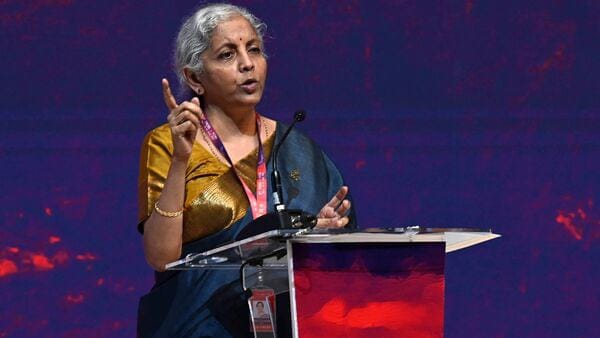
Union Finance Minister Nirmala Sitharaman said that such educational institutions have to introduce classes regarding stress management immediately. She made the statement while delivering a speech at an event held in a medical college in India on September 23, 2024. Remarks by the union finance minister come in the wake of the tragic death of Anna Sebastian Perayil, who was a young Chartered Accountant from Ernst & Young (EY), which has set off a national conversation about the pressures faced by the young professional of today in this competitive job market.
Background of the Incident
Anna Sebastian Perayil was left with bright dreams about her future prospects at EY when she was transferred to the company from the Pune office after she had passed her Chartered Accountancy exams in 2023. However, according to reports, she was overwhelmed by the workload within a short period and was undergoing severe emotional and physical stress. Her mother also referred to it as “backbreaking” in a moving letter sent to EY India Chairman Rajiv Memani. A tragic end to the ordeal for Anna has triggered alarms over the level of corporate culture found in competitive industries and systems supporting the new recruits in their grassland fight for survival.
Sitharaman’s Rallying Call
Sitharaman told the medical college event that resilience should be infused in the students. She also suggested that colleges and universities need to take their focus outside academic excellence but also stress management teaching, emotional well-being, and other similar teachings. “Belief in God and good discipline can foster inner strength,” she said, pointing out the importance of training the young professionals with the needed equipment at the workplace.
Not only would her pronouncements fall towards addressing the immediate issues attracted by the tragic event of Anna’s death, but she also ushered in a cultural shift within educational frameworks to help the students be better prepared for real-life realities in professional life.
Political Reaction
Incidentally, this incident has been much to the criticism of the opposition Congress party. General Secretary K.C. Venugopal condemned her words as “outright cruel” and instead of rectifying the systemic issues responsible for such exploitations, accused the government of victim blaming young professionals. To his mind, corporate practices should be reviewed totally by taking the welfare of the employees in their mind and certain reforms should be brought about, that may be able to check such tragedies in the future.
That reply finally highlights an important aspect of the discussion: the work culture within competitive sectors such as finance and consulting, where long hours and high expectations inevitably mean burnout. Issues of corporate responsibility start to emerge with respect to the duty of employers to create a supportive work environment.
Balanced Approach
Of course, Sitharaman’s call for ‘stress management education’ is the right step. Corporate accountability and systemic reforms need to be integral parts of this strategy. Educational institutions can play a great role in moulding children to manage stress themselves. But they need to ensure that the work environment is healthier. This would seem a two-pronged approach in ensuring that the graduates who go there are not only for knowledge purposes but also emotionally geared to face whatever might present itself to them in their careers.
Free communication between employers and employees should be encouraged. It is the demand of the hour that companies create a culture in which young professionals do not hesitate to raise issues concerning overload and stress. Mentorship programs and mental health resources are also good support systems.
Conclusion
The sobering reminder that tragic death is possible is Anna Sebastian Perayil’s. Nirmala Sitharaman speaking up for stress management education in schools becomes an important acknowledgment of this challenge. But meaningful change could only happen if these efforts were matched by corporate practice reforms and commitment to employee welfare.
While the government investigates the work environment at EY, now is an excellent opportunity to reassess new entry requirements for all employees in high-stress industries. While creating this culture of resilience and support, we see that future generations would not only be academically successful but also emotionally fit enough to deal with the rigors of life.
Those conversations this incident will surely spark make relevant the imperativeness of a balanced approach in acceding to both education and ethical corporate practices in creating healthier, more sustainable work environments for all.




